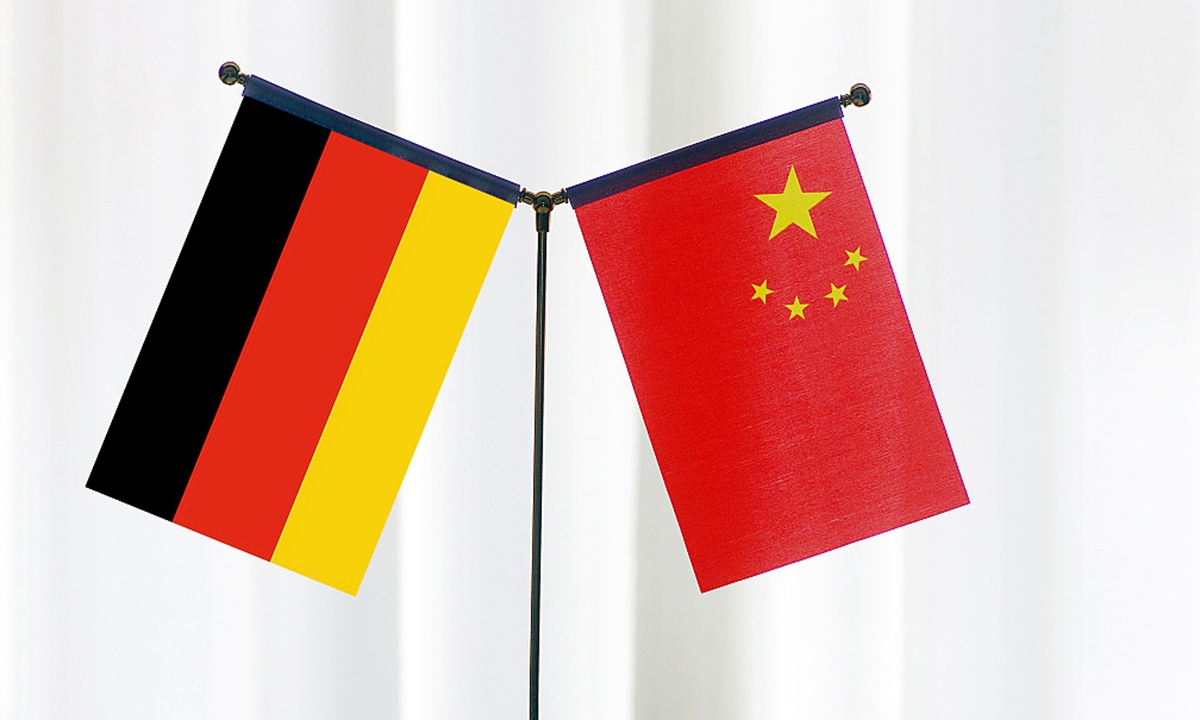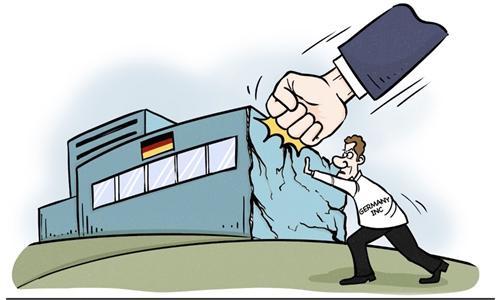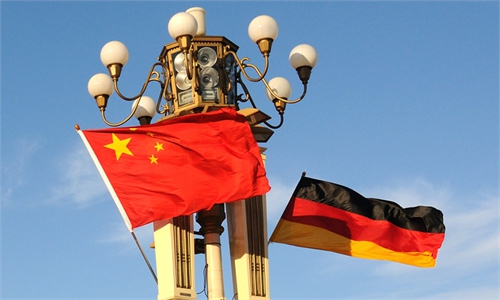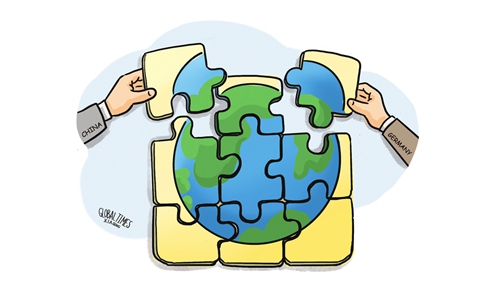
Photo:VCG
The US cautioned Germany against allowing Chinese shipping firm Cosco to obtain a controlling stake in a container port in Hamburg, Reuters reported on Thursday, citing "a senior US State Department official."The report comes days after the German government approved the sale of 24.9 percent of the terminal to Cosco last week and just days before German Chancellor Olaf Scholz is due to arrive in Beijing for his first visit to China, for which the German business community has high hopes to advance practical cooperation between the two countries. By making public the intervention in the deal at this time, US officials are clearly and bizarrely trying to boast their influence over Germany and seeking to dampen the vibe for the German Chancellor's trip.
It's unclear whether the US' intervention played any role in Germany's decision to limit the deal to a 24.9 percent stake compared to its original agreement of a 35 percent stake. What's clear is that the US, in its conquest to force allies and alike into following its lead in containing China's development, is increasingly shameless about its selfishness and disrespect for its allies. As if intervening in Germany's decision on a business deal is not disrespectful enough, US officials are now trying to make Germany look bad by publically suggesting Berlin had heeded their call of "caution."
Whether the Hamburg deal was subject to US influence or not, it is important to note that the US is in no position to dictate normal business cooperation between China and Germany. China-Germany cooperation, whether on the Hamburg deal or in other fields, is a matter between the two countries. There may be divergences in some areas between the two countries, but they should be resolved through coordination and negotiation between the two sides.
Indeed, in terms of investment cooperation, China has many investment projects in Europe, with its investment in the region jumping 13.4 percent year-on-year in 2021.
At present, the US is on the verge of falling into a recession, while Europe is facing energy crisis and record high inflation. So whatever political gambit Washington is trying to pull to undermine the business cooperation between China and Europe, it won't change China's position as Europe's leading investor and the win-win nature and mutual benefit behind it.
Moreover, by recklessly interfering in others' businesses, the US is only making itself look weaker. Over the past years, the US has made no secret of its intention to contain China's development in the long run with a series of confrontational moves against China, including pressuring allies to follow its lead. However, it is becoming increasingly clear that Washington has neither the ability to contain China by itself or the power to force allies to do its bid.
Even though the US has been actively seeking the EU' support for its strategy, it seems that it doesn't have the ability or the will to promise its European allies any substantial economic benefits or to compensate their losses. While some EU politicians seem to have fallen into Washington's trap and lost their sight on the EU's own interests, the US' ideological gambit is unlikely to last long.
As the economic damage mounts, the EU will be unable to bear the cost of sacrificing its own interests to support the US' global strategy and will wake up to that reality sooner or later.
The reason for that is simple. US officials like to tout the close alliance between the US and Europe, but when it comes to Europe's economic interests, they show no respect, let alone concrete support.
In fact, the US has even been profiting from Europe's misfortunes by selling gas to the EU at a price three to four times higher than that in the US. For Europe, it must ask itself that if the US only cares about its own interests, then what's the point of dancing to Washington's tune at every opportunity.
In this sense, Scholz's visit to China could be seen as a self-rescue attempt for the German economy to return to a path of pragmatic cooperation in the face of mounting economic woes.
Under the current circumstances, pragmatic cooperation with China can actually help Germany alleviate many of its economic problems, while "decoupling" from China would make its economy even more vulnerable. The same logic applies also to many other European countries.



